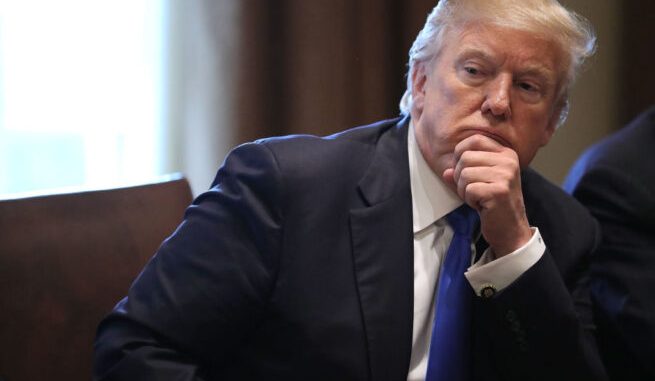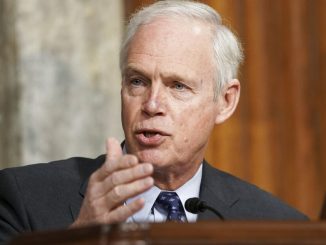

U.S. President Donald Trump (R) presides over a meeting about immigration with Republican and Democrat members of Congress. (Photo by Chip Somodevilla/Getty Images)
OAN Newsroom
UPDATED 4:35 PM PT – Thursday, December 31, 2020
The Senate is preparing to debate whether or not to override the President’s recent veto of the massive ‘National Defense Authorization Act.’
Immediately following Wednesday’s vote queuing up the impending discussion, Senate Majority Leader Mitch McConnell filed a cloture motion, which placed a time limit on arguments.
Among the many reasons for the President’s veto is a provision that calls to rename military bases that are named after confederate leaders. He also denounced the bill for upholding Section 230 rather than repealing it.
On Tuesday, however, McConnell asked his colleagues to continue to support the defense bill by saying it is vital for U.S. defense interests. President Trump called GOP lawmakers “weak,” and said the attempt to defy his veto was an act of cowardice.
Meanwhile, the House already voted to dismiss the veto earlier this week, but some members of the Republican party are backing the President’s play.
Rep. Andy Biggs (R-Ariz.) stood by the decision to veto the NDAA because the bill serves foreign interests, not American interests. Sen. Rand Paul also urged his colleagues on both sides of the aisle to think about the bill, to stop sending money to countries who hate America and to vote for change.
When I make the Senate vote to quit sending money to countries that hate us, only a handful vote with me. If you want change, vote for change — Democrats AND Republicans. https://t.co/VFM6M9tqT3
— Senator Rand Paul (@RandPaul) December 31, 2020
The upper chamber will need two-thirds of the vote to move ahead. If the Senate does move to strike down the veto, it will mark the first dismissal of a presidential veto during President Trump’s time in office.
The veto override vote could take place as early as Friday.





Be the first to comment